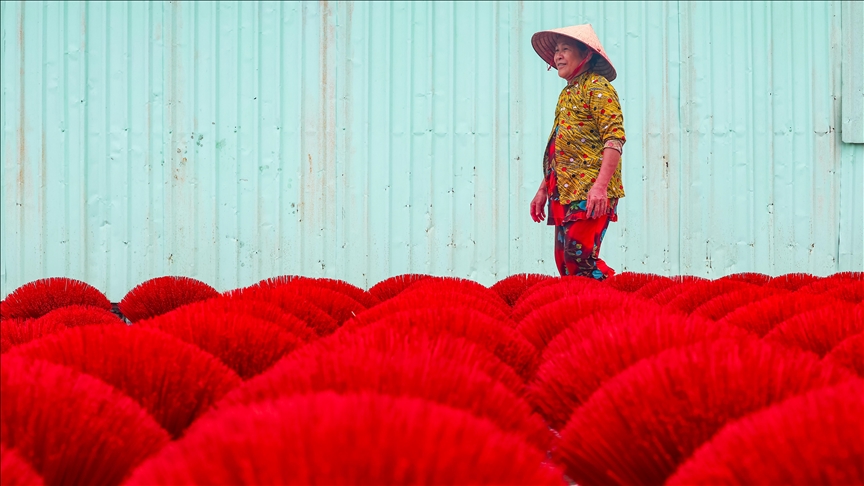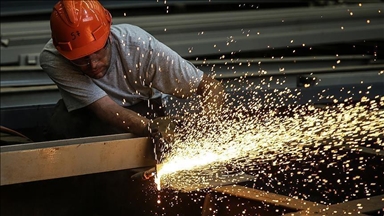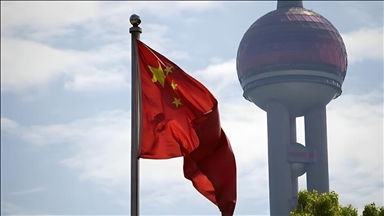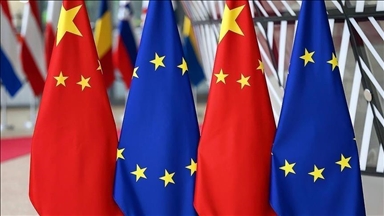EXPLAINER – China’s 5-year plan talks focus on stability, high-quality growth
20th Central Committee of Communist Party of China to convene its 4th plenum in Beijing on Monday

- Priorities include ‘achievable metrics in high-quality development, technological self-reliance, and narrowing regional disparities,’ says Beijing-based analyst Einar Tangen
- Expectations include strengthening ‘China’s defensive military capabilities in all domains,’ says Hong Kong-based analyst Andrew KP Leung
ISTANBUL
China’s ruling elite will gather in Beijing next week for a four-day closed-door meeting to deliberate on the country’s next five-year development plan, with analysts expecting messaging centered on “stabilizing expectations.”
Starting Monday, President Xi Jinping will chair the fourth plenum of the 20th Central Committee of the Communist Party of China (CPC). The outcome is expected to chart the course for the world’s second-largest economy from 2026 to 2030.
According to the agenda released earlier this year, the CPC’s Political Bureau will report its work to the Central Committee, which will also study proposals for the 15th five-year plan for national economic and social development.
A Xi-led Political Bureau meeting in July described the upcoming plan as a “crucial phase for consolidating the foundation and making all-round efforts to basically realize socialist modernization.”
When the 24-member bureau finalized the plenum dates last month, it emphasized the need to “stay committed to high-quality development, foster new quality productive forces,” and focus on scientific and technological innovation, reform, and further economic opening.
China has set a GDP growth target of around 5% for this year.
While the meeting is expected to produce a brief outcome document, detailed targets are typically announced during the National People’s Congress, China’s parliament, which convenes in March each year.
- ‘Eco-Tech’ focus amid a ‘stabilizing message’
Martin Jacques, a British commentator, told Anadolu over the phone from Shanghai that the CPC was meeting at a time when the global environment “is volatile and unstable.”
“The plenum holds very important discussions, and the five-year plans give important direction and targets for the Chinese economy,” Jacques said.
Over the past few years, China’s GDP has exceeded 110 trillion yuan ($15.4 trillion) and is projected to reach around 140 trillion yuan by the end of the current fiscal year.
Xi has emphasized the role of technology in driving economic growth, coining the phrase “new quality productive forces.”
The plenum will focus on “priorities in terms of achievable metrics in high-quality development, technological self-reliance, how to increase domestic demand, narrow regional disparities, deepen market-government coordination, and the social well-being of its people,” said Einar Tangen, a Beijing-based Asia expert.
Andrew KP Leung, a Hong Kong-based analyst, told Anadolu that in light of “unprecedented challenges and opportunities not seen in a hundred years,” the Chinese leadership “must seize the moment, or the zeitgeist of the times, to deepen technological self-reliance, promote domestic consumption, and strengthen the pivot towards the Global South.”
Einar added that senior party bodies are “already calling for better policy predictability, coordinated timing of measures, active steps to shore up market and public confidence, and clearer communications to support households and businesses.”
“So, expect messaging aimed at stabilizing expectations and selectively easing constraints on private and state firms,” he said.
Likely outcomes include a published set of central proposals outlining 2026-2030 priorities, greater support for homegrown technology such as semiconductors, AI, and advanced manufacturing, commitments to reduce internal market barriers, and measures to boost consumption and investment. Detailed numerical targets and budgets will be finalized during the 2026 parliamentary session.
- Growth targets for a ‘sophisticated’ economy
While acknowledging that Beijing faces challenges in meeting its economic goals, Jacques said the main headwinds include “the housing problem, state of the global economy, and tariffs.”
China’s housing sector has deflated massively in recent years, while Beijing continues high-level negotiations with the US over tariff-related issues.
However, Jacques noted that the International Monetary Fund has assessed global growth as more resilient despite tariffs imposed by the US.
He said China would likely aim for annual growth of 5% to 6%, calling it “a very reasonable and decent performance.”
China’s economy, which accounts for roughly 30% of global manufacturing, has “grown sophisticated,” he added.
While “there has been an intention” in China to move away from export-led growth, Jacques said: “When economies develop and move up in the value chain, their abilities to grow are reduced.”
Andrew said the upcoming meeting should “promote greater equality and a better social safety net, not least by way of improving the worsening demographics and realizing ‘common prosperity.’”
He added that China should “deepen” its leadership in green energy sectors, including solar and wind power, and in electric vehicles.
Andrew also said the world expects Beijing to “further advance China’s defensive military capabilities in all domains, including AI, cyber, underwater, and space.”
- CPC’s Central Committee
With 205 full members and 171 alternate members, the Central Committee plays a pivotal role in shaping both party and government leadership in China.
The committee typically holds seven plenary sessions during each five-year term, focusing on strategic and policy directions. Alternate members can attend but do not have voting rights.
The current Central Committee was confirmed in October 2022, when Xi Jinping secured an unprecedented third term as party leader.
The committee usually meets in a heavily guarded hotel complex in western Beijing, secured by the Central Military Commission, which Xi also chairs.
“There will be a significant Central Committee turnover (of members) and a handful of replacements at senior levels because of recent vacancies; uppermost on most people's minds will be any signals about succession,” Einar said.
Anadolu Agency website contains only a portion of the news stories offered to subscribers in the AA News Broadcasting System (HAS), and in summarized form. Please contact us for subscription options.







